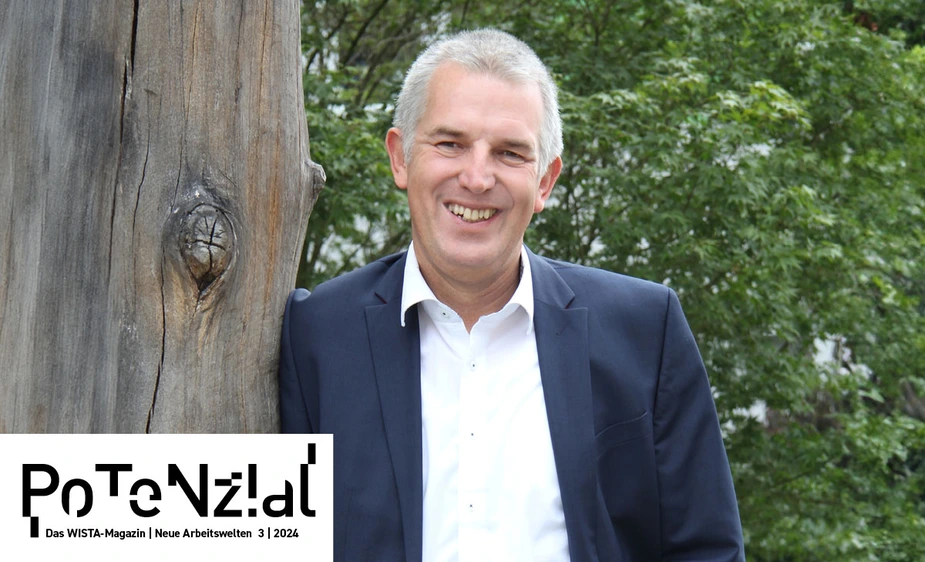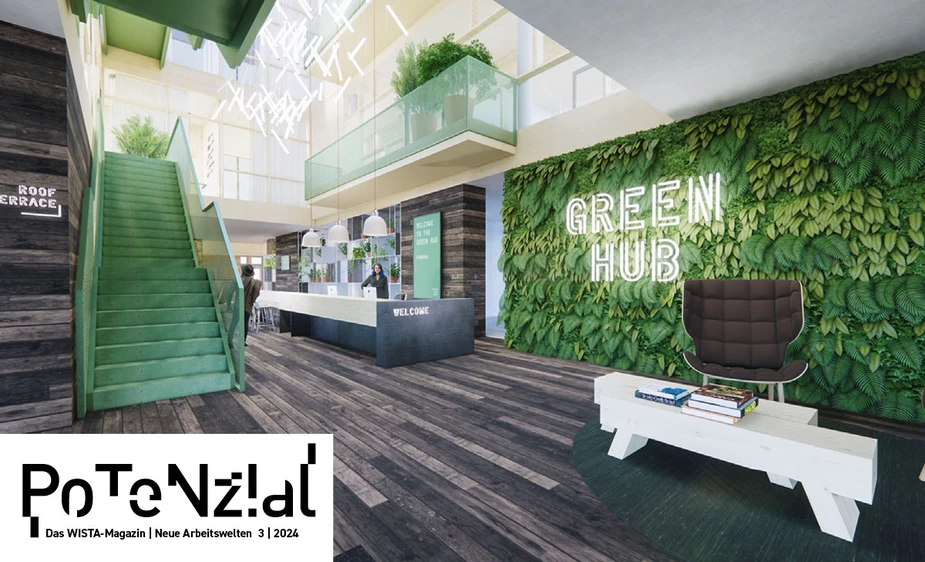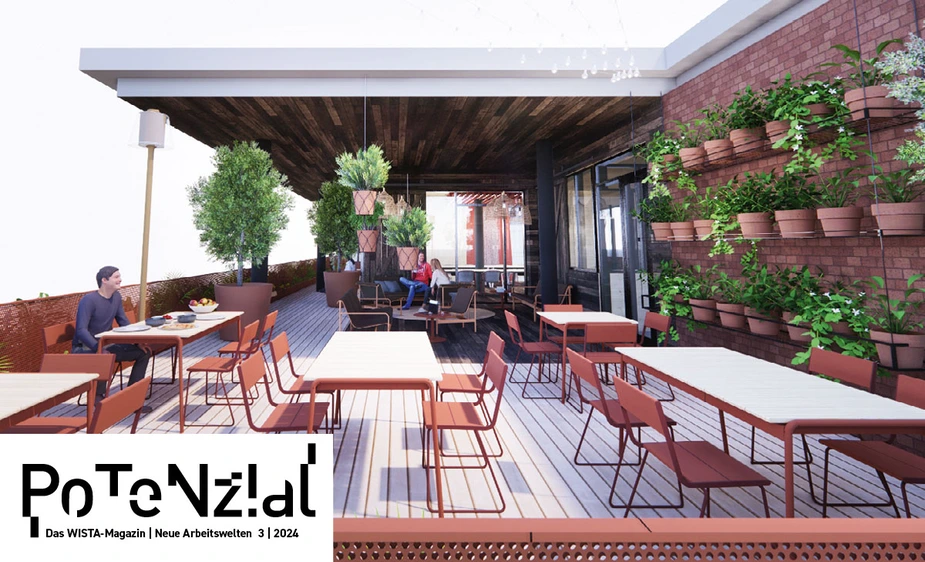“Things will evolve”
Michael Jakobs is planning the “GREEN HUB” coworking space in Lübbenau
Whenever something new is being built in Lübbenau, Michael Jakobs has a hand in it. He has been working for the WIS Wohnungsbaugesellschaft, a housing association in the Spree Forest, for more than 25 years, for a long time as its managing director. Whether he’s developing an artist’s guesthouse, the Spreeweltenbad, or a pickle-themed theme park, his ideas always went go beyond building flats. His newest coup: the GREEN HUB co-working space. People will be able to start working there by 2026.
Michel Jakobs does not hold back when it comes to advertising “his new place”. He waxes lyrically: “It’s in the middle of the Spree Forest, amazing recreational value.” As an established resort town, Lübbenau has a historic old town that’s worth seeing, he says, an attractive living environment, and a rail junction between Rostock, Berlin, Cottbus, Görlitz and Senftenberg. It is precisely through this junction, along the Berlin-Lusatia axis, that countless commuters get to work. All the way up to the Technology Park Adlershof in Berlin’s Southeast. Especially since the coronavirus pandemic, the way we work has changed. Jakobs knows this, too.
Working from home, co-working, remote and virtual workplaces in conjunction with the advancing digitalisation are making dedicated offices in distant locations obsolete. Jakobs is building GREEN HUB exactly for the needs of these new “working nomads”.
Eight percent of the employees at Adlershof-based companies are from the south of Brandenburg. “The impetus for the co-working space came from the head of WISTA Management, Roland Sillmann, in connection with the Future Corridor project,” says Jakobs, thinking back.
“There are many good reasons for this project,” says Lilli Zylka, who is in charge of the Future Corridor project at WISTA. “With the co-working space in the middle of the Berlin–Lusatia Future Corridor along the railway line, Lübbenau will be getting a place that combines the benefits of working from home and working at an office. Talent can work here and network with others under good working conditions, close to where they live. All that work-related driving is reduced, resulting in less traffic. For example, people can use the convenient train connection to get to Adlershof on two days a week, and work at the co-working space on the other days. It’s a win-win situation—for companies, their staff, and the entire region.
Early drafts of the GREEN HUB have been unveiled, showcasing a commitment to ecological considerations and the use of sustainable building materials. The “HUB” in the name sets up the reference to the Future Corridor connecting Berlin and Adlershof with Cottbus and Lusatia. “GREEN” illustrates the Spree Forest, the colour of the building, and its sustainability features. The development has already been signed off, the property will soon be purchased by the city.
The area surrounding GREEN HUB has been a bustle of activity for the last couple of months; around the train station, construction work for a so-called grade-separated traffic concept has begun. As yet, Lübbenau's streets tend to get congested along the three railway crossings on the highway. The “Above and Beyond” concept—a name chosen by its initiators the German railway, the federal- and the state government—aims to ease up congestion by rerouting the main road, building a tunnel as well as a high-level roundabout and four regular roundabouts. Moreover, a second railway track between Lübbenau and Berlin is to double the frequency of service by 2027 at the very latest.
Jakobs’ wish for GREEN HUB is that it contributes to increasing the interconnection between Berlin and the towns along the Future Corridor and to creating symbioses and synergies, especially between companies working in similar fields.
This is also what Zylka wishes for. In addition to the companies from Adlershof, businesses and talent from the region are welcome to use the space. “This mixture is important to us, and the development of Adlershof’s network, the creation of new knowledge, and the acceptance of the project among the people of Lübbenau.” Because of this, the building is planned not to be just a place for working but also a social centre. “Things will evolve,” Jakobs is convinced of this.
Rico Bigelmann for POTENZIAL


